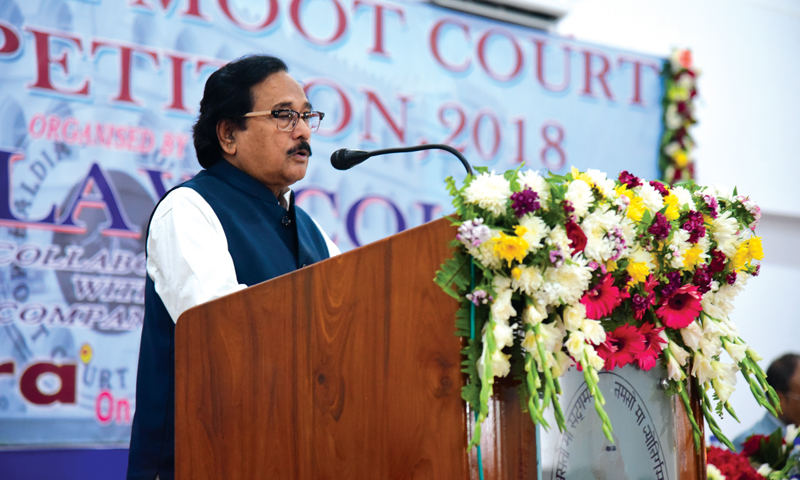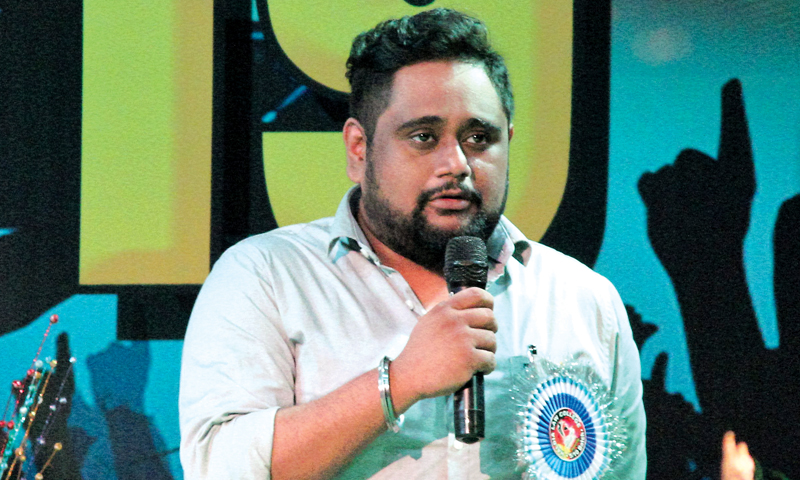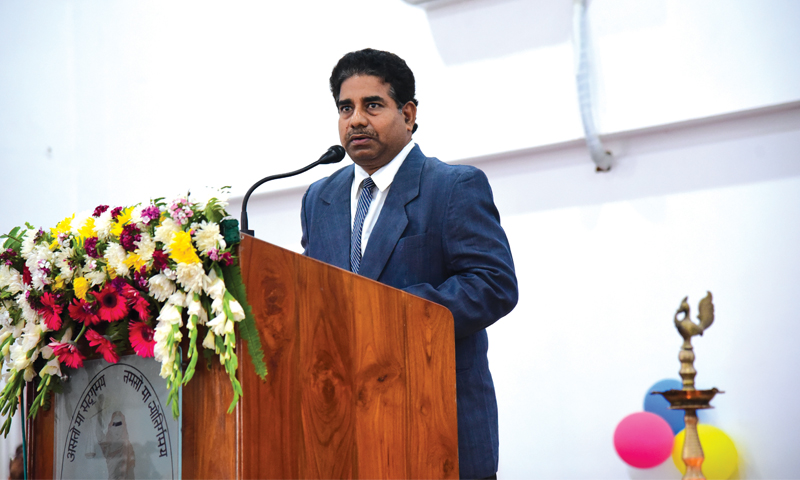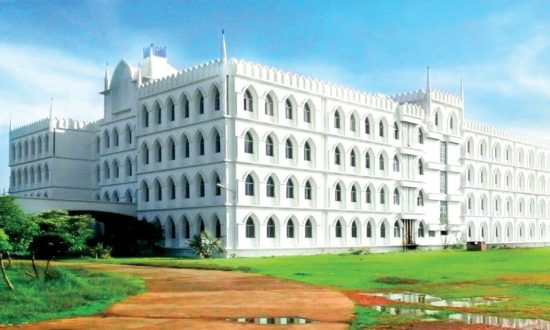A degree in law opens many doors. The aspirants can not only practice as a lawyer in the courts, but also can look for career options in sectors like corporate management, legal services, and administrative services. However, the Indian legal education system faces many challenges now. “The completion of the long-term course of Five Years and Three Years in Law have become a big challenge to the law students in today’s scenario. Considering the vast parameter of law curriculum required to be mastered for Lawyers, Magistrates, Judges, Law Officers and many more, the duration of the course is appropriate. However, to make the course more attractive towards the students, we are trying our level best to introduce more practical based activities so that the students will be more familiar with the activities in the courts and the challenges they would face after entering their professional life,” opines Dr. Laxman Chandra Seth, Chairman, Haldia Law College.

Established in 2002 by the Indian Centre for Advancement of Research and Education (ICARE), Haldia Law College (HLC) is one of the premier legal institutes in Eastern India. Affiliated to Vidyasagar University, HLC provides the scope of depth in study and research in the interactive dimensions of law and society. The institute not only looks at law as an instrument for social change and human well-being but also considers law as an effective managerial tool for rule-based economic governance. Dr. Seth explains, “The vision of the college is to uphold the national prospect by providing quality legal education where in the rhythms of understanding of social transformation are vibrantly inculcated by creating an incredible academic endeavor to evolve legal laurels and professional thus blooming en route for a didactic distinction in our society.”
The basic mission of the establishment of HLC is to indoctrinate the Indian Sprit “Satya Meva Jayate” and to facilitated learners to develops as intellectually augmented and ethically correct things. The institute supports the student to be honest, decent, socially responsible and put them towards knowledge generation and its propagation. “We uphold to disseminate education in course of national integration and encourage entrepreneurship through value-based learning to make good professionals in law and trained them to become globally ready for their profession with dignity,” shares Dr. Pradeepta Kishore Sahoo, Principal, HLC. The college proceeds with a new perspective of pedagogy/lesson plan to enrich the students with a strong theoretical base of the subject as well as practical knowledge for due transmission of professional service to society.

“In the wake of decentralization and liberalization of the economy, students required exploration of knowledge in an unprecedented unit. The sole mission of our institution is to promote quality education which will empower the students to resistant racist and anti-discriminatory practice anywhere in the society,” pinpoints Dr. Sahoo. While India holds definite socio-economic advantages among the developing nations of the world and non-availability of skilled labor is now a reality, HLC is standing as an exception by implementing and introducing practical knowledge by way of intra-college or semester wise moot court competitions, sending students to courts with the help of teacher for observation of trial, sending final year students to advocates chamber for pre-trial preparation. Dr. Sahoo adds, “We are also arranging legal awareness camp in rural areas inside and outside the district with the active participation of Students and Teachers with the help of Senior Advocates of Local Bar, through District Legal Services authority along with the village sarpanch and people of that area.”
In order to develop thinking abilities and memorizing capabilities, HLC conducts Debate, Quiz, Aptitude Test, Essay Competitions among the students. The college strives to instill civic responsibility in the mind of the students through extension programs and value-based courses so that they develop into sensitized socially responsible lawyers. “We take efforts to create a common platform for all students to provide opportunities for appearing common competitive examinations like, Judicial Exam, Law Officers, LL.M. Entrance Exam, Bar Examination and other law and non-law examinations,” claims Dr. Sahoo.

HLC has highly motivated, well qualified and dedicated teaching faculty members, who are forever using their ingenuity to devise ways and means for making the UGC curriculum as interesting as possible. The faculty members of HLC always give their best efforts and proper care to create a healthy academic atmosphere in terms of research and aptitude culture among the students. Dr. Sahoo says, “The teachers are aware of the capabilities and limitations of the students. They prepare and deliver lectures accordingly, as a result, students would get a clear concept about the topics and teachers would get direct feedback on the effectiveness of their teaching.”
The teachers of HLC are constantly in the process of upgrading themselves and their methods of teaching through regular participation in regional, national and international seminars/workshops and conferences, besides the faculty development programs organized by college management each year. “We also have so many functional committees; the faculties are the members of the said committee, but the committee will function with the active participation of the students. Student representatives are also included into some of the committees such as Library management committee, Moot Court Committee, Students forum, Alumni Committee to help them and to develop leadership qualities,” pinpoints Dr. Sahoo.
Today, HLC offers a highly advanced curriculum of five years integrated B.A.LL.B. (Hons.) Course, three years LL.B. Course and two years LL.M. Course, making it one of the few premier law institutes in the eastern region of India that extends all the above-mentioned courses simultaneously. “We have many ambitious plans for the future. Open PhD Programme in the campus, publication of the journal with ISSN number and introducing some short-term Certificate/Value-added Courses relating to the law are few of the immediate ones,” concludes Dr. Sahoo.




